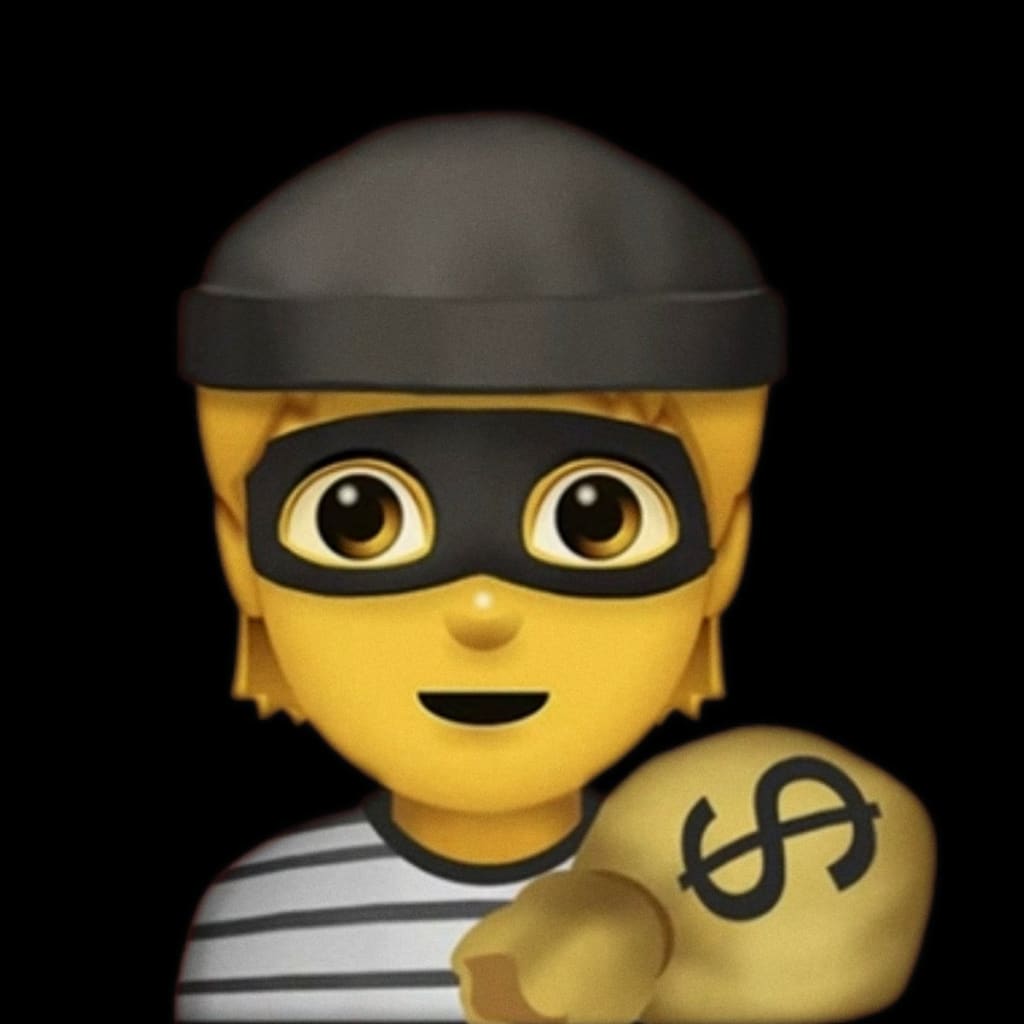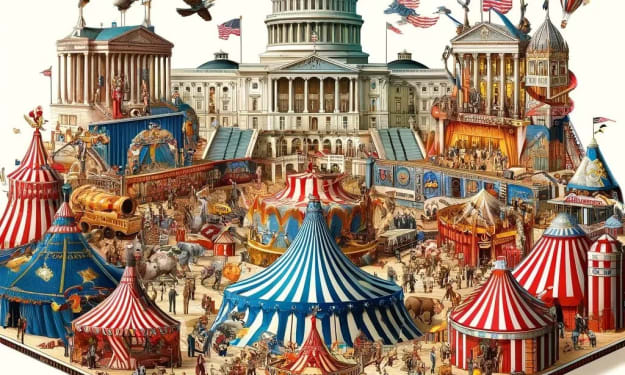The Emoji That Never Existed
A Brain Fart Conspiracy

In the world of emojis, where every symbol tells a story, there's a curious case that has puzzled many: the elusive robber emoji. Countless people claim to remember seeing it, yet it doesn't exist in any official emoji library. Is this a case of a Mandela Effect phenomenon or a simple misunderstanding? Let's explore the intriguing story behind the non-existent robber emoji.
In the early days of emoji adoption, when smartphone keyboards began integrating these tiny icons into everyday communication, users quickly became familiar with popular symbols like the smiley face, thumbs up, and even the poop emoji. Among these, a certain emoji depicting a masked figure with a sack of money gained mythical status. Many swear they've seen it, used it, or at least heard about it.
Enter the Mandela Effect... The Mandela Effect refers to collective false memories shared by a large group of people. Named after the phenomenon where many believed Nelson Mandela had died in the 1980s (he actually passed away in 2013), it's a compelling psychological twist on memory and social influence. Below are ten examples of this effect.
1. Berenstain Bears vs. Berenstein Bears
Many people fondly remember the beloved children’s book series as the “Berenstein Bears,” with an “e” in the last part of the name. However, the correct spelling is “Berenstain Bears,” with an “a.” This slight difference has caused widespread confusion and speculation about alternate realities.
2. Nelson Mandela’s Death
The phenomenon’s namesake, Nelson Mandela, is remembered by many as having died in prison in the 1980s. In reality, Mandela was released in 1990, went on to become South Africa’s president, and passed away in 2013. This collective false memory led to the coining of the term “Mandela Effect.”
3. Looney Tunes vs. Looney Toons
Another popular example involves the classic Warner Bros. cartoon series. Many recall it being spelled as “Looney Toons,” likely because “toons” seems like a logical short form of cartoons. However, the correct spelling is “Looney Tunes,” referencing the musical term “tunes.”
4. The Monopoly Man’s Monocle
A significant number of people remember the Monopoly board game’s mascot, Rich Uncle Pennybags, as wearing a monocle. In reality, he never had a monocle. This false memory is often attributed to confusion with other monocle-wearing characters, like Mr. Peanut.
5. “Luke, I am your father.”
One of the most famous lines in cinema history is often quoted as “Luke, I am your father,” from Star Wars: The Empire Strikes Back. However, the actual line spoken by Darth Vader is “No, I am your father.” This slight misquote has become ingrained in popular culture.
6. Pikachu’s Tail
Fans of the Pokémon series often recall Pikachu, the franchise’s mascot, as having a black-tipped tail. However, Pikachu’s tail is entirely yellow, with no black tip. This common misremembering is another striking example of the Mandela Effect.
7. “We Are the Champions” Ending
Many people remember Queen’s iconic song “We Are the Champions” ending with the lyrics “of the world!” While the band does sing this line, it is not at the song's actual end. The song ends abruptly, leading to widespread false recollections of its finale.
8. Curious George’s Tail
Curious George, the mischievous little monkey from children’s books, is often remembered as having a tail. However, Curious George is a tailless monkey. This misremembering might be because most monkeys do have tails, making it an easy mistake.
9. “Mirror, Mirror on the Wall”
In Disney’s Snow White and the Seven Dwarfs, the Evil Queen is often quoted as saying, “Mirror, mirror on the wall, who is the fairest of them all?” The correct line is, “Magic mirror on the wall, who is the fairest one of all?” This subtle difference has been perpetuated by various adaptations and retellings.
10. The Location of New Zealand
Geographical memories can also fall prey to the Mandela Effect. Some people distinctly remember New Zealand being northeast of Australia, when in reality, it is southeast. This misplacement in mental maps can cause significant surprise when corrected.
Could the robber emoji be a modern-day example of this effect?
As discussions and online forums echoed with claims of seeing the robber emoji, theories began to emerge. Some speculated it was removed due to its negative connotations or replaced with a more generic mask emoji. Others proposed it was part of an elaborate social experiment by emoji developers. Despite the fervent belief in its existence, thorough searches through emoji archives and official releases reveal no trace of the elusive robber emoji. Sceptics argue that its supposed existence is a result of misinterpretation or confusion with similar emojis like the mask-wearing face or the money bag emoji.
The case of the robber emoji serves as a fascinating exploration into how collective memory works in the digital age. Whether a product of the Mandela Effect, a clever hoax, or simply a misunderstanding, its legacy lives on in the minds of those who vividly recall using it. As emojis continue to shape our online conversations, perhaps one day the robber emoji will resurface, or remain forever lost in the annals of internet folklore.
Next time you browse through your emoji keyboard, take a moment to ponder the mysteries that lie within those tiny symbols. Who knows what other hidden tales they might hold?
Follow my YouTube page for some more mind blowing stuff.
About the Creator
Joshua Williams
I'm Joshua Williams, a enthusiast of unravelling the mysteries that lie within our collective consciousness. With a keen eye for detail and a passion for exploring the unknown, I dive deep into the fascinating world of mysteries.
Enjoyed the story? Support the Creator.
Subscribe for free to receive all their stories in your feed. You could also pledge your support or give them a one-off tip, letting them know you appreciate their work.






Comments
There are no comments for this story
Be the first to respond and start the conversation.